Related: Everything Chiefs Coach Andy Reid Has Said About Travis Kelce, Taylor Swift
Advertisement
There has always been an invisible string between Taylor Swift and the Kansas City Chiefs in the form of head coach Andy Reid — but Travis Kelce wasn’t exactly jazzed to learn about it.
“I knew [Taylor] before, from Philadelphia,” Reid, 65, explained during the Monday, January 29, episode of SiriusXM’s Let’s Go! With Tom Brady, Larry Fitzgerald and Jim Gray. “Her dad played [football] at [the University of] Delaware and was a big football fan and good guy. So I had met him there and her.”
Before moving to Nashville in the early 2000s, Swift, 34, grew up on a Christmas Tree farm in Pennsylvania. The pop star has been open about her family’s love for the Philadelphia Eagles over the years, even working the team into some of her songs. Reid, for his part, acted as head coach for the Eagles from 1999 to 2012 before moving on to the Chiefs, the team of Swift’s current boyfriend Travis Kelce.
Reid joked on Monday that his longtime bond with the Swift’s was the “last thing” Kelce, 34, wanted to hear when he started dating the Grammy winner in summer 2023. “[Taylor] told [Travis], ‘I know your coach.’ And he went, ‘Oh, God, come on!’” Reid recalled, laughing.
Swift and Kelce have been dedicated to showing up in support of each other since sparking a romance, with Swift attending more than 10 of Kelce’s games since September 2023. She was in the crowd when the Chiefs beat the Baltimore Ravens for the AFC Championship on Sunday, January 28, and was spotted hugging and kissing Kelce on the field after the game. Swift and Reid also shared their own special moment, pointing and smiling to each other from across the crowd.
The happiness Swift has brought Kelce is something Reid is grateful to see. “She’s a good girl. And I’m happy for Trav,” he told Let’s Go! host Tom Brady, noting that their romance has not caused any type of “distraction” for the tight end. “Trav’s handled it right, she’s handled it right and we just move forward. So it hasn’t been a problem at all.”
Andy Reid finds Taylor Swift in the crowd and points her way. Fun moment between the two. pic.twitter.com/5TtK5Gso55
— Jeff Darlington (@JeffDarlington) January 28, 2024
Reid has been a supporter of the relationship from the very beginning, In November 2023, he shared that he is just thankful the pair have each other. “I’m glad he’s found somebody he likes and she’s found somebody she likes,” he said during an interview with KHSB, Kansas City’s NBC affiliate. “That’s a good thing.”
Two months earlier, he teased that he was the one who played Cupid. “I set them up,” he told reporters in a September 2023 press conference before quickly exiting the podium.
Kelce and Swift’s love story began in July 2023 when the athlete revealed that he attended one of Swift’s concerts to give her a friendship bracelet with his phone number on it. Although unsuccessful, Swift later caught wind of the gesture and the duo began dating shortly after. Kelce later explained that there was someone keen on setting them up even before he attended her concert.
“There were definitely people she knew that knew who I was, in her corner [who said]: ‘Yo! Did you know he was coming?’” he told WSJ. Magazine in November 2023. “I had somebody playing Cupid. She [later] told me exactly what was going on and how I got lucky enough to get her to reach out.”
While Reid was certainly a connection for Swift and Kelce upon meeting, the couple’s real matchmaker, dirt track racer Danny Frye III, revealed himself earlier this month.
“Funny thing is, a lot of people have been trying to figure out who I am lately. It’s been an interesting month or so [and] I’ve been going to a few Chiefs games,” Frye, who is Swift’s second cousin, told FloRacing TV at the time. “You know, [I] made a love connection between her and Travis Kelce, so it’s been quite the 34 years that [Taylor and I have] had together.”
Although Reid wasn’t who struck Swift and Kelce with Cupid’s arrow, the coach made it clear during an October 2023 press conference that the singer is always welcome in Kansas City: “She can stay around all she wants,” he said.
Cooper Neill/Getty Images There has always been an invisible string between Taylor Swift and the Kansas City Chiefs in the form of head coach Andy Reid — but Travis Kelce wasn’t exactly jazzed to learn about it. “I knew [Taylor] before, from Philadelphia,” Reid, 65, explained during the Monday, January 29, episode of SiriusXM’s Let’s
Us Weekly Read More
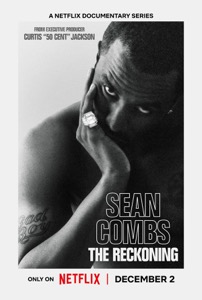
50 Cent’s new Netflix docuseries about Sean “Diddy” Combs is more than a headline-grabbing exposé; it is a meticulous breakdown of how power, celebrity, and silence can collide in the entertainment industry.
Across its episodes, the series traces Diddy’s rise, the allegations that followed him for years, and the shocking footage and testimonies now forcing a wider cultural reckoning.
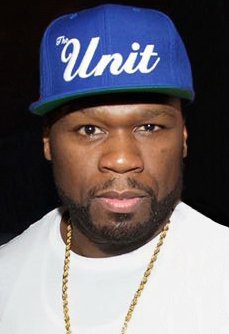
The docuseries follows Combs from hitmaker and business icon to a figure facing serious criminal conviction and public disgrace, mapping out decades of influence, branding, and behind-the-scenes behavior. Watching that arc shows how money, fame, and industry relationships can shield someone from scrutiny and delay accountability, even as disturbing accusations accumulate.
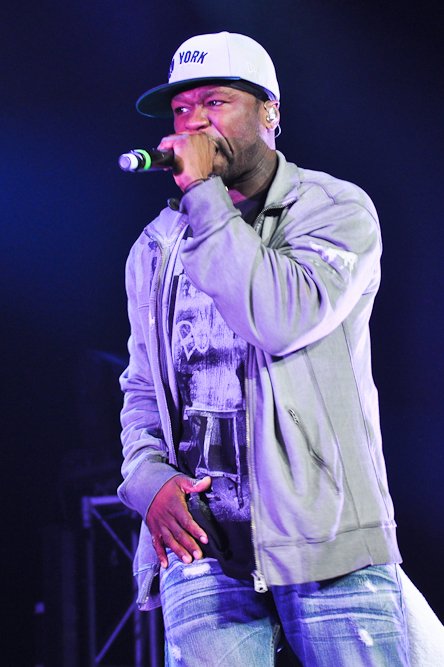
Exclusive footage of Diddy in private settings and in the tense days around his legal troubles reveals how carefully celebrity narratives are shaped, even in crisis.
Viewers can learn to question polished statements and recognize that what looks spontaneous in public is often the result of strategy, damage control, and legal calculation.
Interviews with alleged victims, former staff, and industry insiders describe patterns of control, fear, and emotional or physical harm that were long whispered about but rarely aired in this detail. Their stories underline how difficult it is to speak out against a powerful figure, teaching viewers why many survivors delay disclosure and why consistent patterns across multiple accounts matter.
As executive producer, 50 Cent uses his reputation and platform to push a project that leans into uncomfortable truths rather than protecting industry relationships. The series demonstrates how documentary storytelling can challenge established power structures, elevate marginalized voices, and pressure institutions to respond when traditional systems have failed.
Reactions to the doc—ranging from people calling it necessary and brave to others dismissing it as a vendetta or smear campaign—expose how emotionally invested audiences can be in defending or condemning a famous figure. Watching that debate unfold helps viewers see how fandom, nostalgia, and bias influence who is believed, and why conversations about “cancel culture” often mask deeper questions about justice and who is considered too powerful to fall.
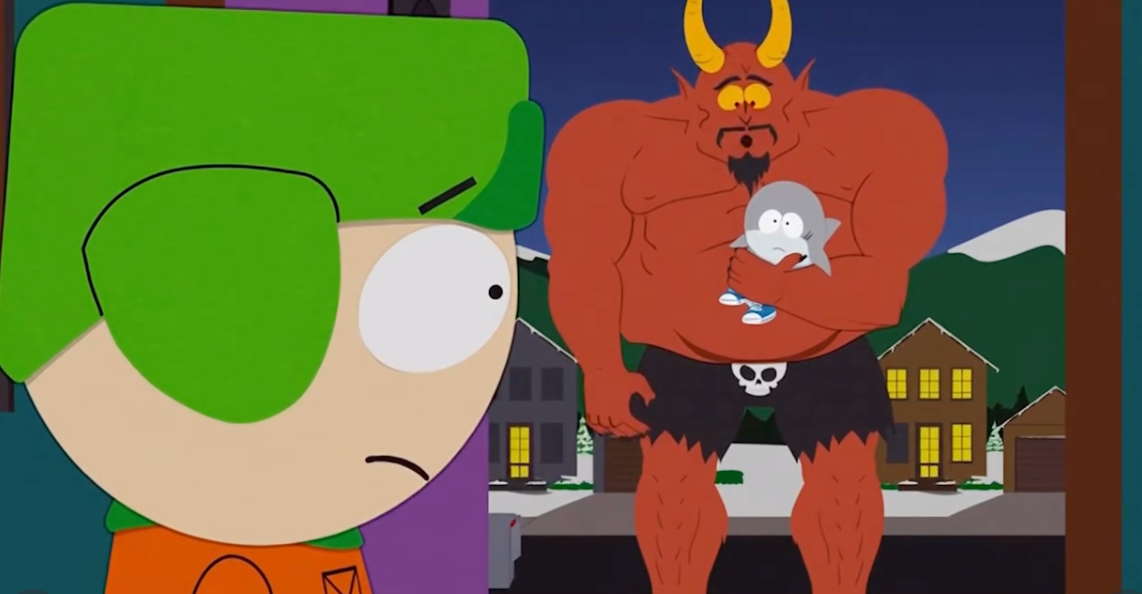
A new Christmas-themed episode of South Park is scheduled to air with a central plot in which Satan is depicted as preparing for the birth of an Antichrist figure. The premise extends a season-long narrative arc that has involved Satan, Donald Trump, and apocalyptic rhetoric, positioning this holiday episode as a culmination of those storylines rather than a stand‑alone concept.
According to published synopses and entertainment coverage, the episode frames the Antichrist as part of a fictional storyline that blends religious symbolism with commentary on politics, media, and cultural fear. This follows earlier Season 28 episodes that introduced ideas about Trump fathering an Antichrist child and tech billionaire Peter Thiel obsessing over prophecy and end‑times narratives. The Christmas setting is presented as a contrast to the darker themes, reflecting the series’ pattern of pairing holiday imagery with controversial subject matter.
Coverage notes that some figures connected to Donald Trump’s political orbit have criticized the season’s portrayal of Trump and his allies, describing the show as relying on shock tactics rather than substantive critique. Commentators highlight that these objections are directed more at the depiction of real political figures and the show’s tone than at the specific theology of the Antichrist storyline.
At the time of reporting, there have not been widely reported, detailed statements from major religious leaders focused solely on this Christmas episode, though religion-focused criticism of South Park in general has a long history.
Entertainment outlets such as The Hollywood Reporter, Entertainment Weekly, Forbes, Slate, and USA Today describe the Antichrist arc as part of South Park’s ongoing use of Trump-era and tech-world politics as material for satire.
South Park is rated TV‑MA and is intended for adult audiences due to strong language, explicit themes, and frequent use of religious and political satire. Viewers who are sensitive to depictions of Satan, the Antichrist, or parodies involving real political figures may find this episode particularly objectionable, while others may view it as consistent with the show’s long‑running approach to controversial topics. As with previous episodes, individual responses are likely to vary widely, and the episode is best understood as part of an ongoing satirical series rather than a factual or theological statement.

Sydney Sweeney has decided she is finished watching strangers on the internet treat her face like a forensic project. After years of side‑by‑side screenshots, “then vs now” TikToks, and long comment threads wondering what work she has supposedly had done, the actor is now addressing the plastic surgery rumors directly—and using them to say something larger about how women are looked at in Hollywood and online.

Sweeney points out that people are often mistaking normal changes for procedures: she grew up on camera, her roles now come with big‑budget glam teams, and her body has shifted as she has trained, aged, and worked nonstop. Yet every new red‑carpet photo gets folded into a narrative that assumes surgeons, not time, are responsible. Rather than walking through a checklist of what is “real,” she emphasizes how bizarre it is that internet detectives comb through pores, noses, and jawlines as if they are owed an explanation for every contour of a woman’s face.
By speaking up, Sweeney is redirecting the conversation away from her features and toward the culture that obsesses over them.
She argues that the real issue isn’t whether an actress has had work done, but why audiences feel so entitled to dissect her body as public property in the first place.
For her, the constant speculation is less about curiosity and more about control—another way to tell women what they should look like and punish them when they do not fit. In calling out that dynamic, Sweeney isn’t just defending herself; she is forcing fans and followers to ask why tearing apart someone else’s appearance has become such a popular form of entertainment.
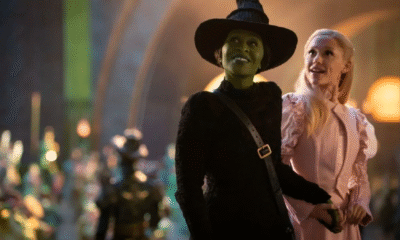

Ariana & Cynthia Say They’re in a ‘Non‑Demi Curious, Semi‑Binary’ Relationship… WTF Does That Even Mean?


Mexico Bans Dophin Shows Nationwide


Colombia’s ‘Doll’ Arrest: Police Say a 23-Year-Old Orchestrated Hits, Including Her Ex’s Murder


How The Grinch Became The Richest Christmas Movie Ever


Miley Cyrus Is Engaged to Maxx Morando


US May Completely Cut Income Tax Due to Tariff Revenue


Luana Lopes Lara: How a 29‑Year‑Old Became the Youngest Self‑Made Woman Billionaire


Disney Brings Beloved Characters to ChatGPT After $1 Billion OpenAI Deal